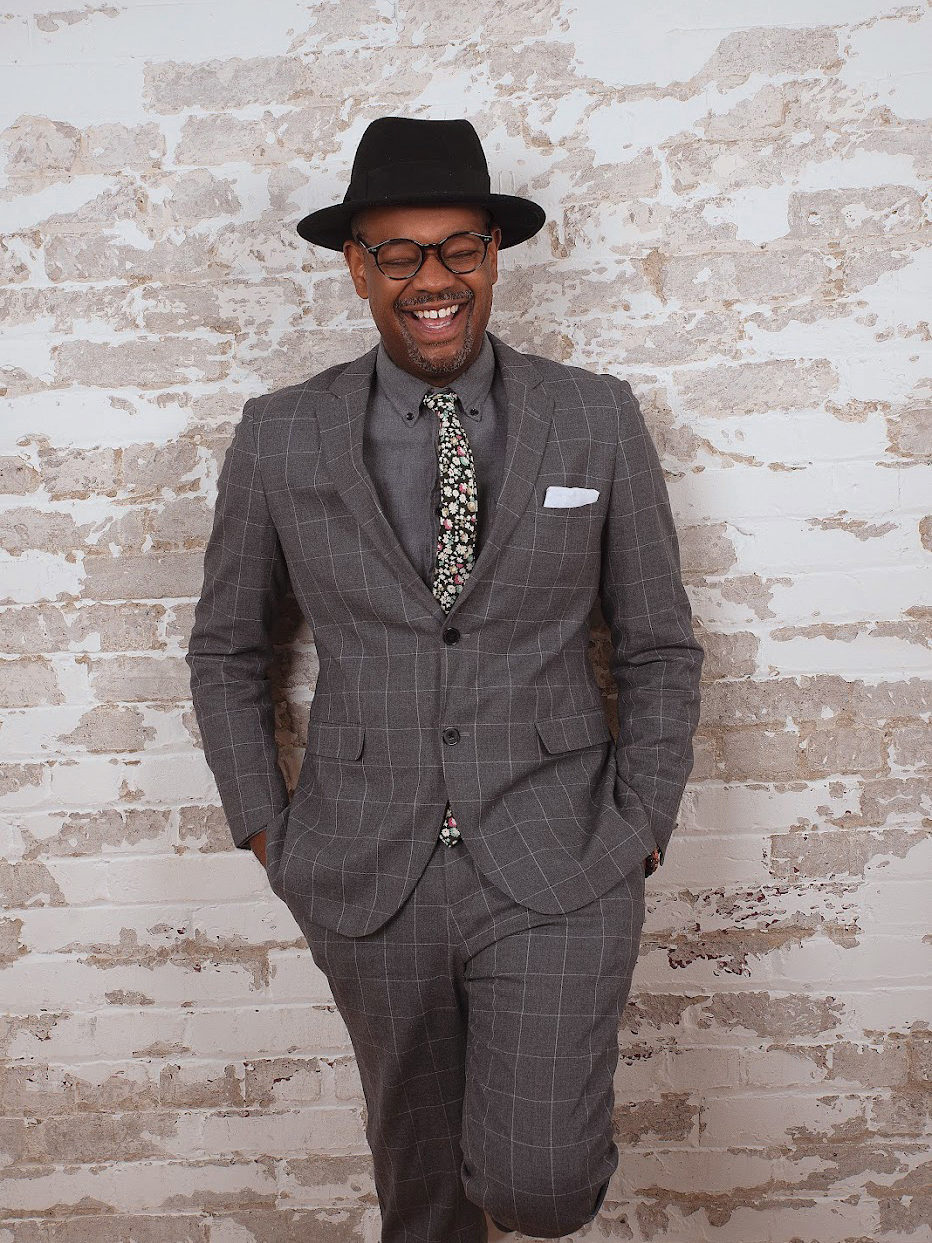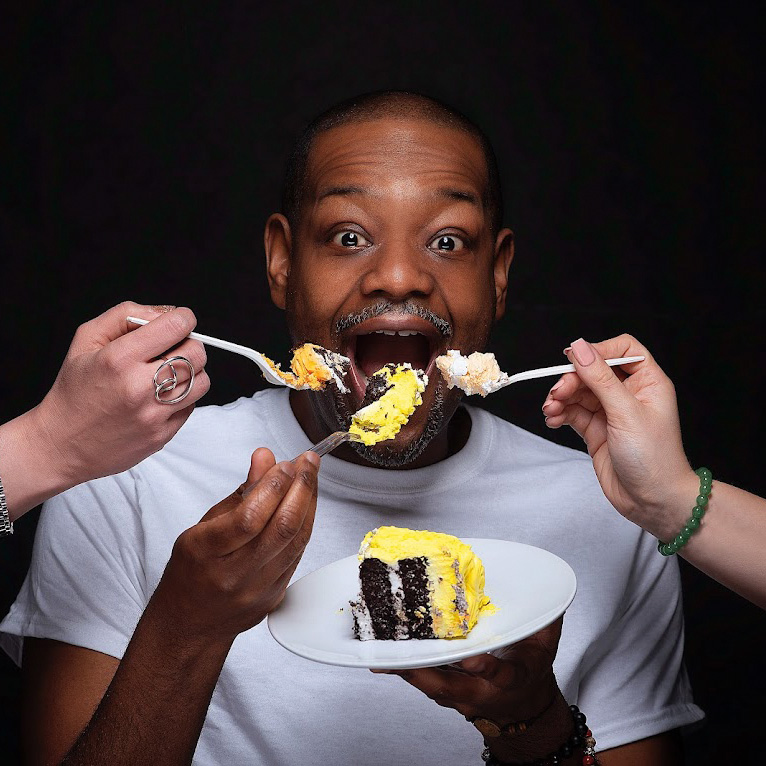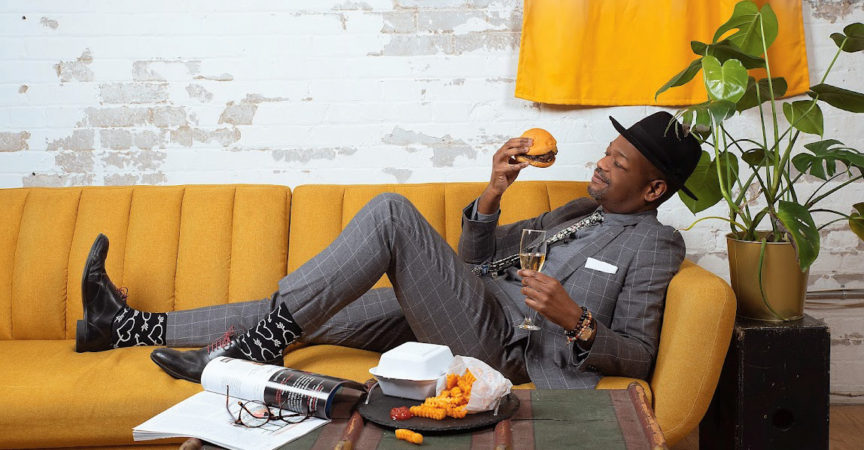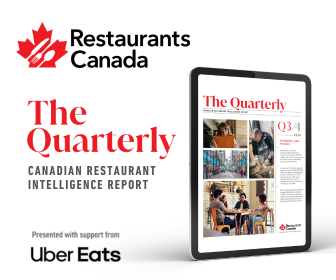It’s Black History Month.
SO…
what are your plans for the rest of the year?

BY RYAN HINKSON, FOOD CULTURALIST
@eatfamous
For many content creators, partnering with large brands is the goal. Aside from the prestige and larger paycheques, it’s a sign you have made it—that the brand you built for yourself has been deemed worthy and valuable enough to allow you to work with some recognized brands and companies.
But what if those highly coveted partnerships only seem to pop up during a very specific time? Say like, in February for Black History Month. This is the reality for many Black content creators, chefs and business owners who are some of the most influential, creative and skilled folks in the hospitality industry. Frequently hired, highly sought-after and highlighted for 28 days of the year, but severely underused or forced to fight for the same attention for the remaining 11 months. Whether it’s a Black food blogger being asked to visit a buzzworthy restaurant, a Black chef being called into a Fortune 500 company to cook for a Black History Month initiative, or a Black-owned restaurant making a “Top 10 Restaurants to Try This February” list on a litany of websites, IG accounts and magazines, the disparity between how often these professionals are called upon for their expertise during Black History Month
February is Black History Month, and we should celebrate Black history and recognize the contributions and the legacies of those who came before us. And, highlighting and hiring Black contributors to this industry in February is important. It’s important because, as is the case in many other industries, Black creatives generally earn less and receive less exposure than their peers.
I run an Instagram account called EatFamous, with over 250,000 followers. I’m also an influencer, a content creator, event host, panelist and podcast contributor (usually on food), I make TV appearances to talk about, you guessed it, food. I’ve worked with brands like McDonald’s, the Toronto Raptors, Google, the NFL, AMEX, the LCBO and many more. During the summer of 2020, I lost over 20,000 followers in a matter of weeks after voicing my support for the protests that followed the murders of George Floyd and Breonna Taylor. A clear message was sent by a large portion of my follower base about how they felt about me sharing my beliefs on my account. Some insisted that it was not personal; they were just there for the food. Was I angry? Yes. Was I surprised? No. Would I do things differently? Definitely not. Still, a significant loss of followers can severely affect a creative’s ability to book jobs.
Ironically, in February of 2021 I was busier than ever. Due in part, I’m sure, to the social upheaval after the Floyd and Taylor murders and the fact that it was Black History Month. My inbox was full of requests to work with me. Many of my Black friends and industry acquaintances were getting calls for work and appearances. While financially it was a great time, the last thing any Black creative wants to feel is that they’re a victim of “tokenism”, a checkmark on a diversity, equity and inclusion mandate, or that a prospective partner’s embracing of their talents is simply performative. After the calls slowed down through March and April, how could we believe otherwise? Tokenism in our industry is a topic that is very important to me—so much so that it birthed a podcast I
will be launching in collaboration with Quell and Azalea Hart called More Than, because Black history, Truth & Reconciliation, Asian Heritage Month, Pride and similar celebrations are more than the days, weeks or months noted on a calendar. They are infinitely important topics that cannot be neatly packaged into a time frame or presentation.
Organically formed partnerships based on genuine admiration, with the intention of developing lasting relationships, should be the premise upon which any collaboration is built. How can we tell the difference between an authentic partnership and a perfunctory action? Well, we may not be able to truly know what is in someone’s heart or mind, but there are some tips on how to foster the purest partnerships possible.
Think long term. For starters, how long will this relationship last? Sure, if your organization is looking to highlight Black History Month, then of course the expectation for that specific campaign or event to occur and end in February is realistic. But does the entirety of the relationship only span those 28 magical days? Has there been any thought given to how this can be a true partnership and how you can develop an actual relationship? It makes sense for all parties involved to forge a long-term relationship because they yield better results, allow growth and resonate as more authentic to your audience, internal team, or customers.
Appreciate, don’t appropriate. I’ve heard countless stories of restaurants and various other institutions wanting to celebrate Black History Month by adding culturally relevant foods to their menus, but not employing Black chefs to develop the recipes or have any input on the menu. Involving individuals who identify directly with the highlighted foods or initiatives not only legitimizes the gesture, but also properly respects the cuisine and culture. Another way to avoid appropriation is to do your research and not only offer the meal, but include a history of the food along with its cultural significance. Do not be afraid to reach out to experts outside your organization if there is no one who can accurately speak to it internally.
Take an honest look within. Do you have Black staff on your team? Does your organization foster and maintain actual relationships with members of the Black community outside of the workplace? Does your restaurant or brand attract Black customers? Often, taking an honest look at our internal landscape and closest relationships can be great indicators of work we may need to do to broaden connections with other people and cultures.
If you are actively engaging with and attracting communities of colour, then meaningful exchanges with them must take place throughout the year and outside recognized moments of celebration.
Meaningful Engagement
Black food industry creatives share tips for restaurants and other businesses on how to build long-term, meaningful relationships.
La-toya Fagan | Owner & Executive Chef, Twist Catering
“Companies can have more authentic relationships with Black chefs and creators by allowing them to put bids in for events at their venues. A lot of companies and venues allow certain companies to have monopolies. After Black History Month, we are still chefs and creators. We are still providing the same exceptional services. Our services appeal to the masses as well and we are still niche enough to provide
to the marginalized.”
Tony Bradshaw | Owner, Street Bites
“I am always excited to be of service to whomever chooses my business. Especially in a market as competitive as Toronto, it’s my job to provide the best food, to be of service and to create an incredible experience. That way, when there’s a craving, a need, or even if a friend asks for a recommendation, my products and my business are top of mind.”
Eden Hagos | Founder, Black Foodie
“First have more Black people on your team to begin with. It’s time for brands to see the value in working with Black food creators all year long. We shape the culture and set trends and we eat all year long! I think it’s time brands recognize the opportunities that exist when you tap into the creative our community has.”
Bashir Munye | Chef, Culinary Professor & Food Advocate
“Black folks are not interested in empty gestures and symbolism. Keep your statues, basketball courts, tokenistic holidays, and the Neo Liberal discourse around inclusivity. What we want is economic justice, Black food sovereignty and judicial support for freedom and liberation.
“What have you done for me lately…?”

IG: EatFamous
I’m Ryan Hinkson and I eat a lot of food. Why? Because it’s my job. And it’s a really cool job. I’m a Food Culturalist. My guess is that you’ve probably never heard the term “Food Culturalist” before— there aren’t a lot of people who do what I do. I highlight the changes in food culture and the people behind those changes.
QUELL
Ryan Hinkson is a member of the Quell talent roster of diverse chefs, certified drink experts and health,
lifestyle and food content creators. We’re ready. Let’s make real change together.









